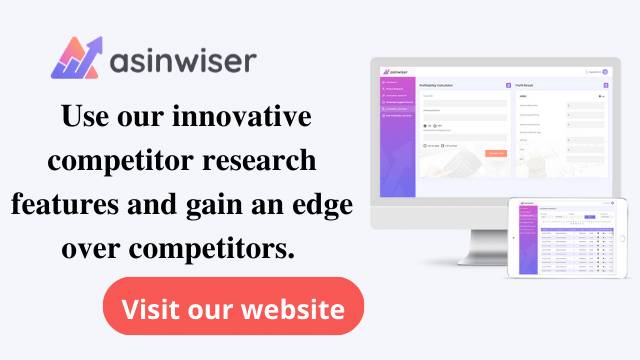
Private Label Vs. Wholesale: How To Make The Right Decision For Your Business
Wholesaling can be a great way to get started, while Private Label offers the ability to create and scale your very own brand.
A recent boost in the wholesale world with push of course offered by some biggest names in the Amazon space has led us to think about pros/cons for each option when selecting a selling method on amazon.
Private labeling refers to products that are manufactured by a third-party and sold under the brand name. When you choose a private label, your company is essentially manufacturing goods with specific specifications created specifically for other businesses like yours–in other words: it’s all about creating an original product tailored just right! And if research on Amazon serves as any indicator (and let’s face it—it always knows what people want), then performing extensive analysis before launching can save time in both production AND promotion because there won’t have been much guesswork involved when trying to put together this one of a kind offering everyone will love.
With so many different products to choose from, it is easy for private label sellers or new entrepreneurs like yourself faced with a saturated market and lose thousands in inventory. But don’t worry! Asinwiser has your back when you need help finding that one-of-kind item no other seller can offer because our platform provides access to millions of unique items across all categories – making sure there’s always something fresh on offer at any given time.
The benefits of private labeling are many, with total control over your product and brand being one major factor. You can make money off high-profit margins if you sell in an unsaturated niche or differentiate yourself accordingly through branding elements like design—and there’s no limit to how much volume it takes! To access these profits though requires proper cash flow which may not come easily unless you own the buybox (which most brands don’t). It sounds great on paper but before committing remember this crucial detail: Private Labeling is not for faint hearted !
Disadvantages of private label
Private-label brands require significant initial investment to get off the ground. A business owner must factor in all costs like product sourcing and inventory, branding with packaging for instance; this adds up quickly! But don’t worry – it’s not only possible these days thanks largely due a shift towards recognizing well established names rather than new ones that need funding early on in their life cycle (which means you’ll have more capital at your disposal).
With challenges like restricted inventory from Amazon, keeping your products in stock can have a direct impact on the bottom line. But it is not just about maintaining an adequate amount for sale; you also need to make sure they are stocked correctly and consistently so that customers will come back again and buy more goods from you instead of going elsewhere when their current supply runs out or being disappointed with what’s available due lack-of marketing efforts around new releases.
Product sourcing & manufacturing issues – Finding reliable manufacturers who don’t produce too much at once becomes difficult as soon seems saturated because there’ll always be another company ready willing
Advantages of wholesale
Wholesale companies are great for business owners who want to make an income by selling products that people know and trust. You can markup up your retail prices 30-50% which will lead you into a profit outcome or sound business structure with strong customer base and brand awareness already established among customers as they purchase from previous orders made on these same brands before hand
Distributors have access to a large amount of inventory, so running out is less likely. You can start your company quickly and scale as needed without having to build up equity in an already established brand that may be risky for investors or consumers alike!
Disadvantages of wholesale distribution
The reality is that Amazon has a near monopoly on the market for many of these products. This means you’re up against not only your local Walmart but also other sellers, all vying to sell their goods at what they believe are higher prices than yours can offer them – even if it means going through another retailer in order to reach potential customers! As such any hopes or aspirations about out pricing competition by selling “better” would likely be met with disappointment because there just isn’t enough room left under this roof as it’s so large already.
Which Amazon Model Is The Best?
It comes down to personal preference! As you see from this article, there are benefits of both wholesale and private labels. If you’re looking for a quick launch without having the necessity of building up an entire brand new eCommerce store in order just sell on Amazon then
Private label could very well suit what do need – but if it’s something more high profile with less risk involved (like starting off as big fish) then going through WHOLESALE might be better suited too! Do some research before deciding so that when launched everything will run smoothly.
Having an intelligent software tool—Asinwiser—for online sellers will assist you to run your business in the right direction. Asinwiser.com is an excellent solution that will help you to target your potential audience with its all-in-one features such as brand story, product research, competitor research, profitability calculator, fba calculator and so on.
- Tags: Private labelWholesale
Share this:
Subscribe to Our Newsletter
Recent Post
- Top 13 Amazon Inventory Management Tools for FBA Sellers in 2023
- Asinwiser: The Ultimate OMSGuru Alternative for Amazon Sellers
- Repricer.com Alternative: Why Asinwiser is the Superior Choice for Amazon Sellers
- Aura Alternative: Why Asinwiser is the Superior Choice for Amazon Repricing
- Maximize Amazon Sales with Asinwiser: The Superior Amazon Repricer & Revenue Analytics Tool
